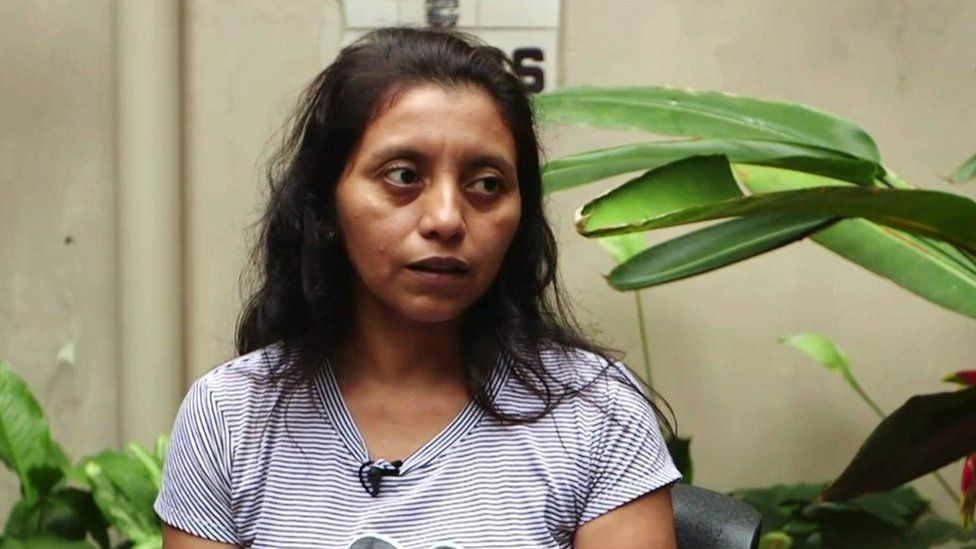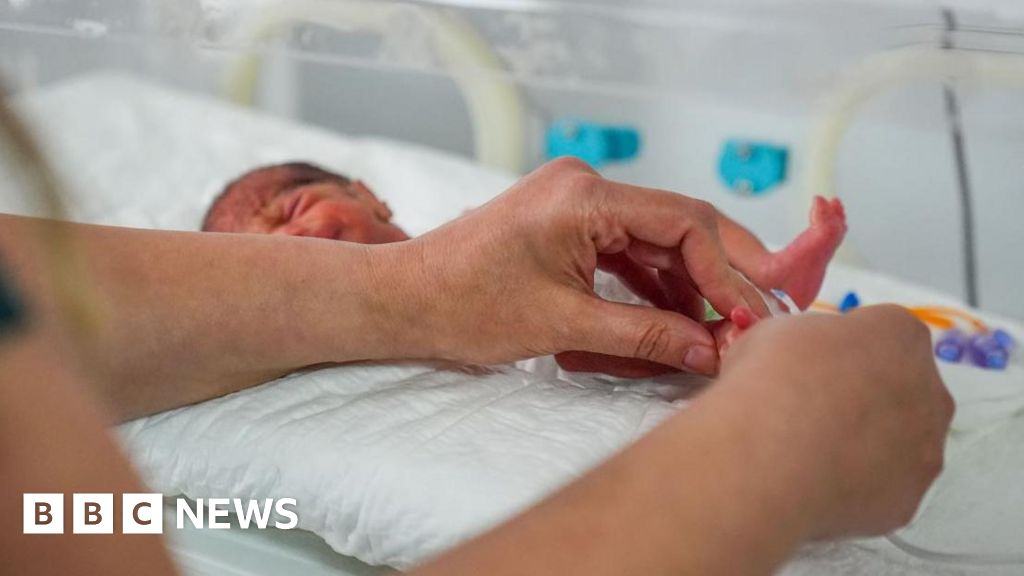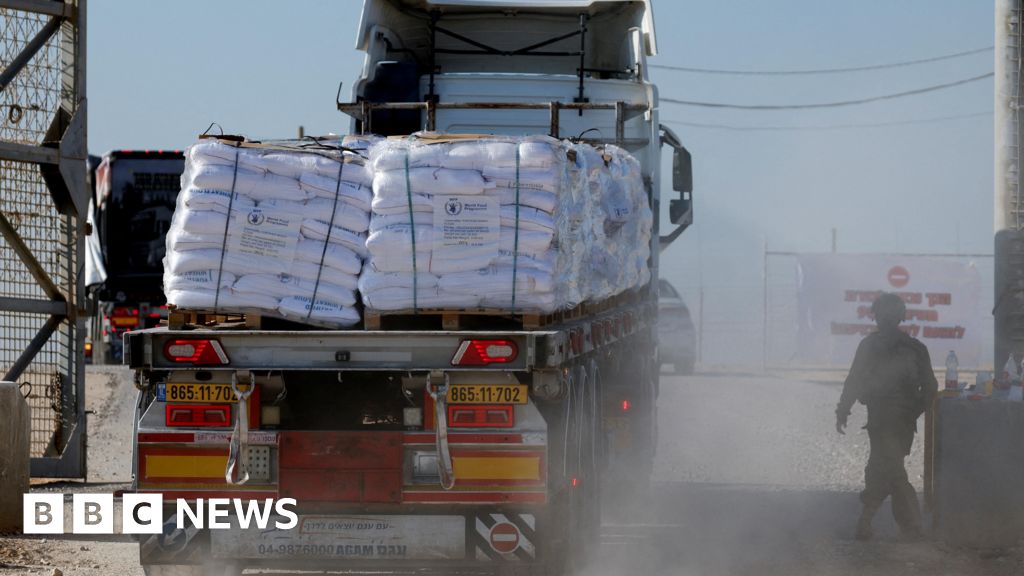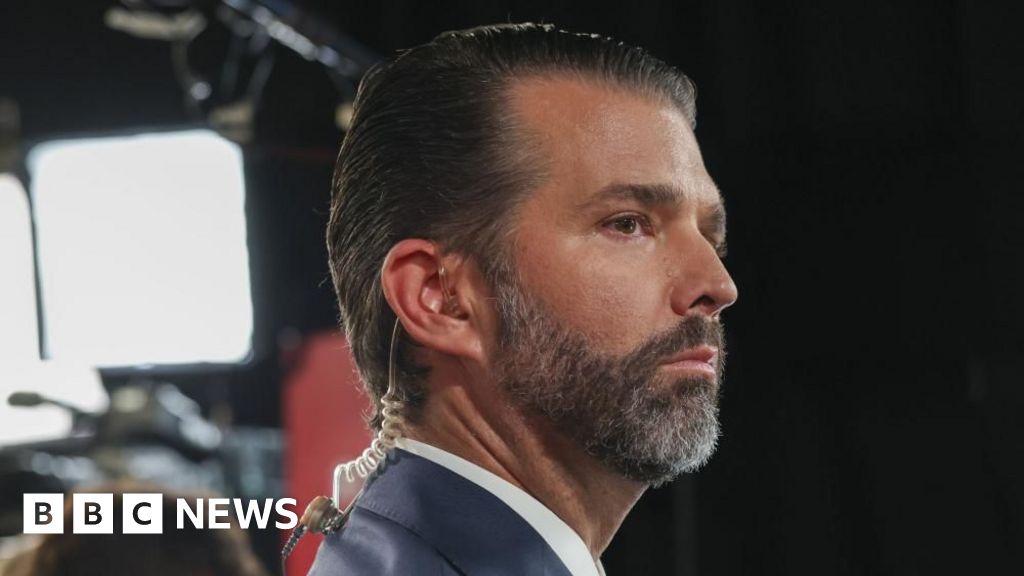ARTICLE AD BOX
By Will Grant
BBC News, San Salvador, El Salvador

Elsy served 10 years in prison for aggravated homicide after she suffered a miscarriage
The news from the US that women face tighter restrictions on abortion has been felt in El Salvador, which itself has very strict laws preventing access.
In February, four women sat down before the full glare of El Salvador's press. Between them, they had served nearly 50 years in prison.
Their crime was to have the misfortune of suffering a miscarriage - in a country with one of the strictest abortion laws in the world.
In June 2011, Elsy was pregnant and working as a domestic worker in her hometown. She remembers going to the toilet at work, where she apparently passed out.
When she came to a little later, she was surrounded by police officers. Her baby was gone. Her boss had reported her for terminating the pregnancy.
At her trial, Elsy was sentenced to 30 years for aggravated homicide. She served 10 before campaigners managed to get her sentence shortened.
Image source, Getty Images
Image caption,In May 2022, four Salvadoran women spoke out for the first time after being incarcerated following a miscarriage
"I felt terrible in prison, all I could think of was the 30 years," Elsy told the BBC. "I thought I'd never see my mother or any of my family again."
Elsy tried to distract herself in jail. She got her high school diploma, participated in workshops and volunteered at the prison church.
Yet it wasn't enough to stop her from entering a dark place in her head.
"I just kept thinking, 'Why? Why did those who testified against me do this?'"
Now back living with her family, Elsy says her sentence was simply an "injustice which happens" in El Salvador. She points out there are many still going through what she did.
As recently as May, a woman identified as "Esme" was sentenced to 30 years, also for aggravated homicide following a miscarriage.
Mariana Moisa says abortion rights is a painful subject that people would rather ignore
But protests have been difficult since the country's controversial president, Nayib Bukele, imposed a state of exception giving the police wide-ranging powers of arrest.
Mariana Moisa is one of the leading women's rights activists in El Salvador. She is part of the "green wave" abortion rights movement sweeping across Latin America.
Ms Moisa says their battle isn't just to free the women or even change the law, but to shift attitudes in society.
"We have to keep working, it depends on us and not the political parties", she says at her organisation's headquarters in San Salvador. "We have to face up to our reality and promote real cultural changes."
Over in the United States, the US Supreme Court has overturned a ruling that made abortion a constitutional right.
Campaigners like Ms Moisa fear this will strengthen the hand of conservatives across Central America.
The US would do well to look south, she warns, to see how an outright ban can lead to "denying women their freedom in these circumstances".
Image source, Getty Images
Image caption,El Salvador has only seen a few pro-abortion rights protests recently compared with some of its Latin American neighbours
Changing attitudes in El Salvador won't come easily, though.
Padre Vito Guarato is a home for abandoned children in San Salvador, many of whom have some form of disability.
Five-year-old resident Ana Lucia has microcephaly, where children are born with significantly smaller heads, possibly due to infection with the Zika virus.
Lying in her cot, surrounded by donated teddy bears, Ana Lucia needs round-the-clock attention. Her carers do everything they can to provide her with a comfortable and dignified life.
But in truth, with no option to abort in El Salvador, some parents see little choice but to abandon.
"I think the mothers should assume their responsibility", says Rosa Evelyn, one of the managers at the church-run children's home.
"If God bestowed upon you the virtue of becoming a mother, then you must be one for as long as God allows it," she says.
It's a view shared by many in this traditionally Catholic nation.
What's more, the fastest-growing religion in Central America today is evangelical Christianity.
Some estimates suggest as much as 40% of Salvadorans now identify as evangelicals
As its reach grows, so too does its political clout, with evangelical values and views increasingly present inside parliament.
Guillermo Gallegos, one of the vice presidents of the national assembly, is staunchly anti-abortion.
He insists decriminalisation would never pass the first legislative hurdle, "even where the mother's life is at risk".
"In any case where that little creature still has life," he tells me, "then I lean towards saving it over saving the mother".
In a national address on the anniversary of his third year in office, President Bukele applauded a plan, led by his wife, to make childbirth safer in El Salvador's public hospitals.
Abortion, though, remains strictly off limits, even in cases of incest or rape - an entrenched view now bolstered by the ruling of the US Supreme Court.

 2 years ago
35
2 years ago
35








 English (US)
English (US)